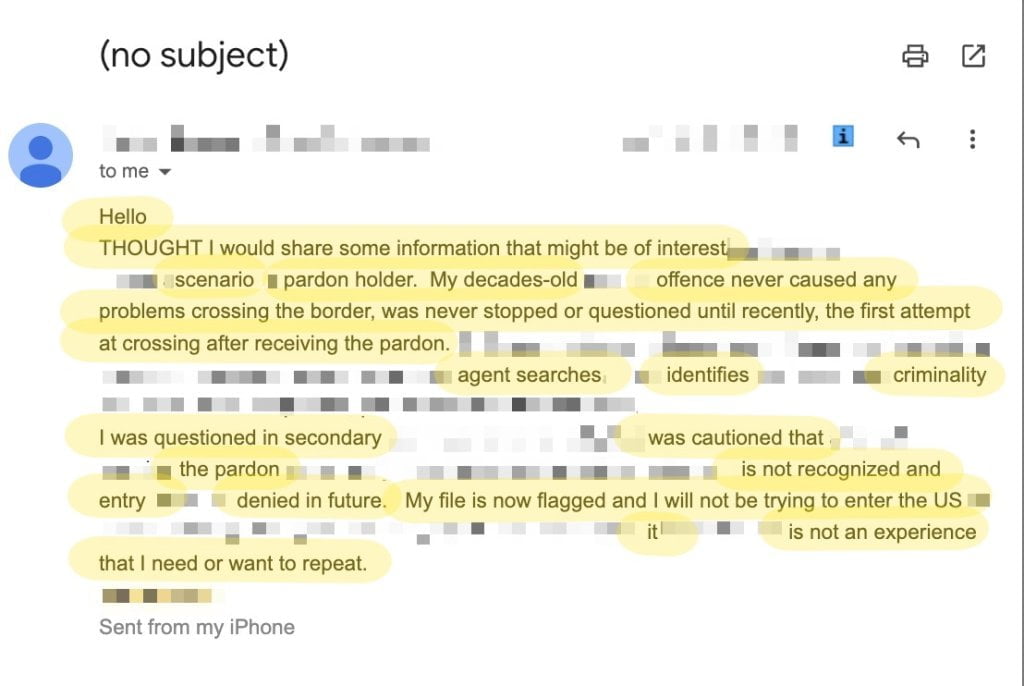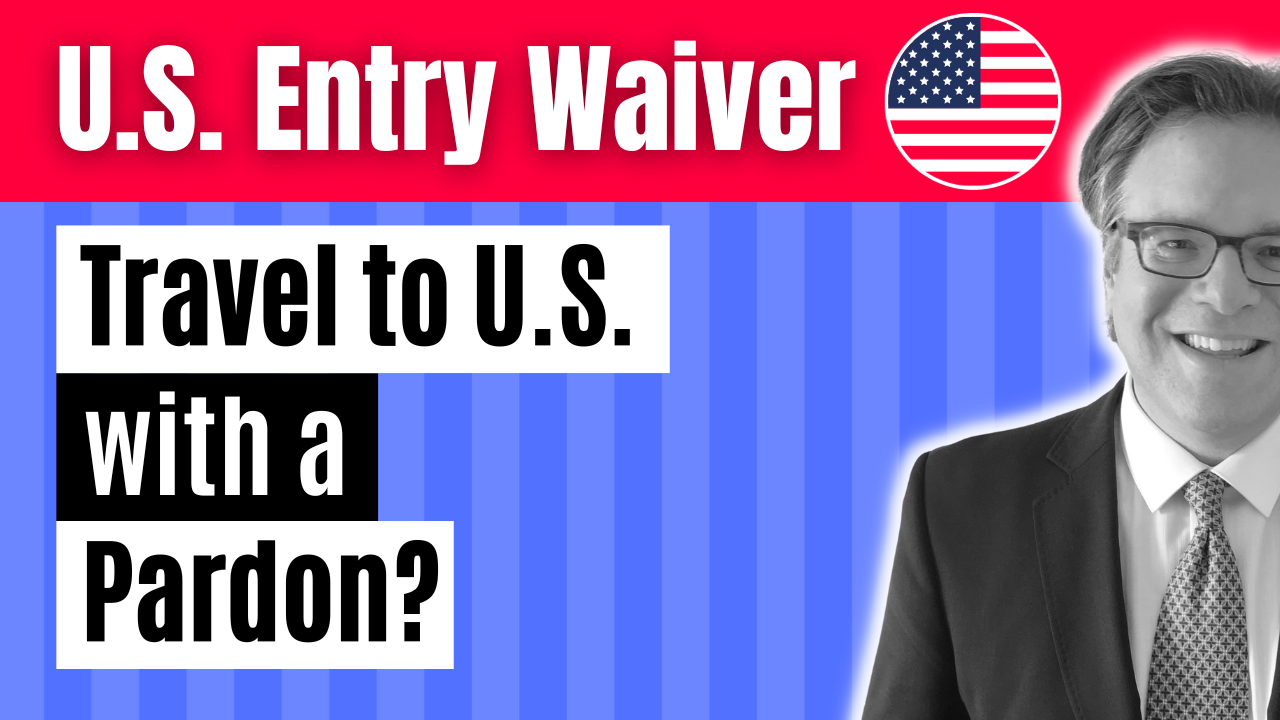Our law firm received an alarming email from a Canadian with a Pardon travelling to the United States that I want to share with you.

Unfortunately, this email describes a common scenario.
And there are lots of questions that need to be answered.
The biggest one being, how can the U.S. Customs and Border Protection, the CBP, see your pardoned offences after you received a pardon in Canada?
Let me break it down:
1. U.S. Does Not Recognize Canadian Pardons
- A Canadian pardon hides your criminal record under Canadian law. But the United States does not recognize or honour Canadian Pardons or Record Suspensions.
- When you try to enter the United States, your Pardon has no legal standing or power in the United States. The U.S. CBP treats you as if your criminal record still exists.
- That means you may still need a U.S. Entry Waiver to legally enter the United States, even with your Pardon.
2. U.S. May Access Criminal Record Archives
- When you get a Pardon or Record Suspension in Canada, your charges get removed from the CPIC criminal records database.
- However, CBP officers may be able to access older CPIC versions that they’ve downloaded and using these old database versions, may be able to find your past criminal history.
- They may also be able to see traces of your criminal record like a fingerprint service number which indicates you were arrested and charged.
- Seeing any criminal history will likely trigger what’s called a secondary inspection by the U.S. CBP.
- In these secondary inspections, the CBP will ask you detailed questions about your criminality.
3. Depends on Type of offence
- If the U.S. CBP officers access your criminal record, your specific charges determine if you’ll be denied entry to the United States or not.
- Minor convictions like DUIs may not cause problems. But “crimes involving moral turpitude” often lead to denial of entry.
- This is a complex area of law. If you’re not sure about whether your crimes involve moral turpitude, reach out and schedule a free call with me.
The bottom line – a Canadian Pardon or Record Suspension does not guarantee entry to the United States. You may still need a U.S. Entry Waiver. With proper legal help, you may be able to visit the U.S. without any problem.
Can I enter the U.S. with a Canadian Pardon?
No, the U.S. does not recognize Canadian Pardons or Record Suspensions. In the U.S., Canadian pardons have no legal standing. Even if you have a Canadian Pardon, the U.S. Customs and Border Protection may still treat you as if your criminal record exists. This means you may need a U.S. Entry Waiver to legally enter the United States.
What determines if I'll be denied entry to the U.S. with a past offense?
Entry into the U.S. depends on the nature of your past offenses. While minor convictions like DUIs may not be a problem, crimes involving moral turpitude can lead to denial of entry. It's a complex area of law, and if you're unsure about your situation, it's advisable to consult a legal expert.


